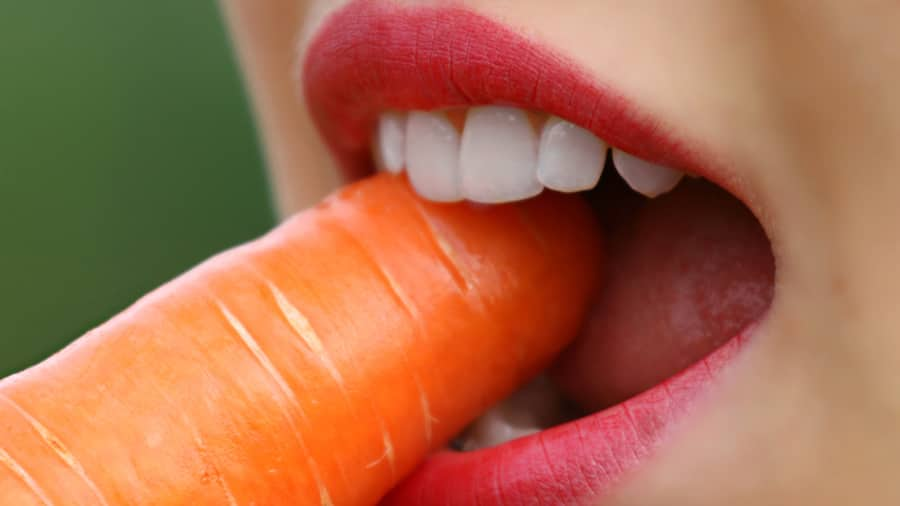-
-

TEETH WHITENING
What Is Stannous Fluoride Toothpaste?Stannous fluoride toothpaste helps prevent cavities, reduce sensitivity, fight plaque, and support daily gum and enamel health.

Selecting Dental Products
Best Toothpaste in India: Five Dentist-Recommended TypesToothpastes today are formulated to meet your every dental need and come in many flavours. Have your dental professional suggest the best toothpaste in India.
-
Science & Innovation
- ORAL HEALTH CHECK
- PRODUCT MATCH
- Colgate® | Toothpaste, Toothbrushes & Oral Care Resources
- Oral Health
- Nutrition & Oral Health
- Make dental nourishment part of your daily regimen


While we often focus on nourishing our skin, hair, and nails, we rarely talk about dental nourishment. Nourishing your teeth is essential because they are the primary tools used for chewing, speaking, and smiling. A healthy set of teeth can not only help you enjoy your favorite foods but also boost your confidence and overall well-being.
Neglecting your teeth can lead to problems such as bad breath, tooth decay, cavities, and gum disease. Therefore, it is crucial to prioritize dental nourishment as part of your overall health and wellness routine.
Why nourish your teeth?
Your teeth go through a continuous cycle of demineralization and remineralization through the day. When oral bacteria and food debris combine with saliva, they form a sticky film on the surface of teeth known as plaque. The plaque bacteria feeds on food particles in the mouth producing an acid byproduct that leaches essential minerals from the tooth surface. That is when demineralization takes place. The removal of vital minerals like calcium and phosphate that contribute to the strength and hardness of enamel, the tough and protective outer layer of the tooth, weakens it, making it more susceptible to decay.
Demineralization can make you more sensitive to hot or cold substances, as well as sugary foods and drinks. This is because the enamel becomes porous, and food penetrates the tiny openings, causing sensitivity. This can occasionally result in cavities or other dental problems.
But interestingly, our bodies have a natural defense mechanism. Most of the negative effects of demineralization are cleverly countered by our saliva. In fact, saliva serves two purposes. It first assists in neutralizing and removing the acids and sugars that may cause tooth demineralization. Secondly, it transports calcium and other minerals, consumed through food and drink, to your teeth. These minerals gradually remineralize the enamel. [12]
However, not every type of oral health issue can be resolved by saliva. In severe cases, dentists may prescribe fluoride therapy. Fluoride significantly reduces the rate of tooth decay by protecting the enamel from plaque, but it is even more effective when combined with another ingredient, arginine, which helps improve the speed and success
of the natural remineralization of teeth. [13] Arginine is an amino acid that can be obtained from dietary sources and is found in proteins and peptides in the human body.
How does arginine work on teeth?
According to clinical studies, toothpaste containing 1.5% arginine and fluoride has shown superior enamel remineralization in the early stages of cavities and rehardening of root surface lesions. [14] Arginine has proven to complement the benefits of fluoride by directly influencing dental biofilm and pH balance of the mouth. It also has a positive impact on the composition of oral biofilms. This helps arrest demineralization and improve remineralization, making dental nourishment truly part of your daily regimen.
This article is intended to promote understanding of and knowledge about general oral health topics. It is not intended to be a substitute for professional advice, diagnosis or treatment. Always seek the advice of your dentist or other qualified healthcare provider with any questions you may have regarding a medical condition or treatment.
ORAL HEALTH QUIZ
What's behind your smile?
Take our Oral Health assessment to get the most from your oral care routine
2.3 billion
people worldwide suffer from tooth decay
ORAL HEALTH QUIZ
What's behind your smile?
Take our Oral Health assessment to get the most from your oral care routine
2.3 billion
people worldwide suffer from tooth decay
Related Products

Helping dental professionals
More professionals across the world trust Colgate. Find resources, products, and information to give your patients a healthier future










